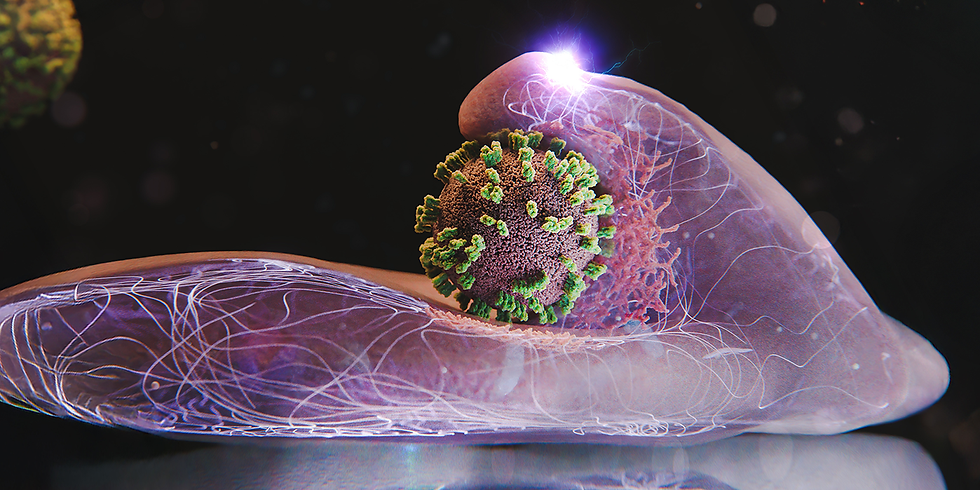Free EARA event on openness in animal research in Switzerland, this November
- Oct 8, 2019
- 3 min read
The latest in the series of EARA science communications events, supported by the Federation of European Neuroscience Societies (FENS) and the Society for Neuroscience (SfN), will take place in Zurich, Switzerland, on 6 November.

University of Zurich, Switzerland
Improving Openness in Animal Research in Switzerland is a free event (register here) and will focus on why scientists, researchers, press officers and other stakeholders should talk openly about animal research, but will not be a debate about the ethics of animal experimentation.
It will take place on the Wednesday, 6 November, (13:30 – 16:30 CEST) at the University of Zurich (UZH) and is a public event, although it will be of particular interest to those working in the life sciences sector.
Following the presentations, moderated by Dr. Michaela Thallmair, Animal Welfare Officer, of UZH, there will be a panel discussion followed by a drinks reception.
Speakers:
Kirk Leech, Executive Director, European Animal Research Association
Kirk is Executive Director of EARA, a communications and advocacy organisation whose mission is to uphold the interests of biomedical, and other life sciences, research and healthcare development across Europe. Previously Kirk worked for the Association of the British Pharmaceutical Industry and Understanding Animal Research, the UK’s leading advocacy group on the use of animals in medical research.
Dr. Valerio Mante, group leader at the Institute of Neuroinformatics, University of Zurich
Valerio Mante is a group leader at the Institute of Neuroinformatics of the University of Zurich and Eidgenössische Technische Hochschule (ETH) Zurich, Switzerland. Dr. Mante holds a master’s degree in physics and a Ph.D. in neuroscience from ETH Zurich. For his Ph.D. thesis, where he studied the computational principles of early visual processing in mammals. Subsequently, he was a postdoctoral fellow in the laboratory of Professor Bill Newsome at Stanford University, California. In Stanford, he studied the neural processes underlying context-dependent behaviour, and discovered a new mechanism that allows neural signals to be flexibly gated between different brain areas. Since 2013, he is back in Zurich, where his laboratory focuses on understanding the role of prefrontal cortex in normal and impaired cognition.
Marcel Falk, Head of Communications, Swiss Academy of Sciences
Since 2011, Marcel Falk has been Head of Communications at the Swiss Academy of Sciences. In his previous post, from 2003 to 2010, he was in charge of the communication division of the Federal Veterinary Office and acted as spokesperson on topics such as bird flu, aggressive dogs and animal protection. Marcel Falk has a biology degree from the Biozentrum in Basel and he did his master thesis at the Basel Institute for Immunology, Roche. He worked as an editor at the German monthly magazine "bild der wissenschaft" and as a freelance science journalist in Germany and Switzerland.
Prof. Michael O. Hottiger, DVM, PhD, Molecular Biologist and President of Forschung für Leben
Michael O. Hottiger is a veterinary by training and obtained his PhD in the field of molecular biology at the University of Zurich (UZH). After postdoctoral studies at the Howard Hughes Medical Institute, Ann Arbor, he became an independent group leader at the Institute of Veterinary Biochemistry of the UZH. He has now a full professorship in Biochemistry and Molecular Biology jointly at the Vetsuisse and the Sciences Faculties of the UZH and is the head of the Department of Molecular Mechanisms of Disease. In his research, Michael O. Hottiger focusses mainly on inflammation-associated diseases. He is since 2012 a member of the Research Council of the Swiss National Science Foundation and is president of the association ‘Forschung für Leben’ which aims at fostering the dialog between scientist and the public. This year, he co-initiated the ‘Swiss Transparency Agreement on Animal Research’ (STAAR).
Last updated on 8/10/19



